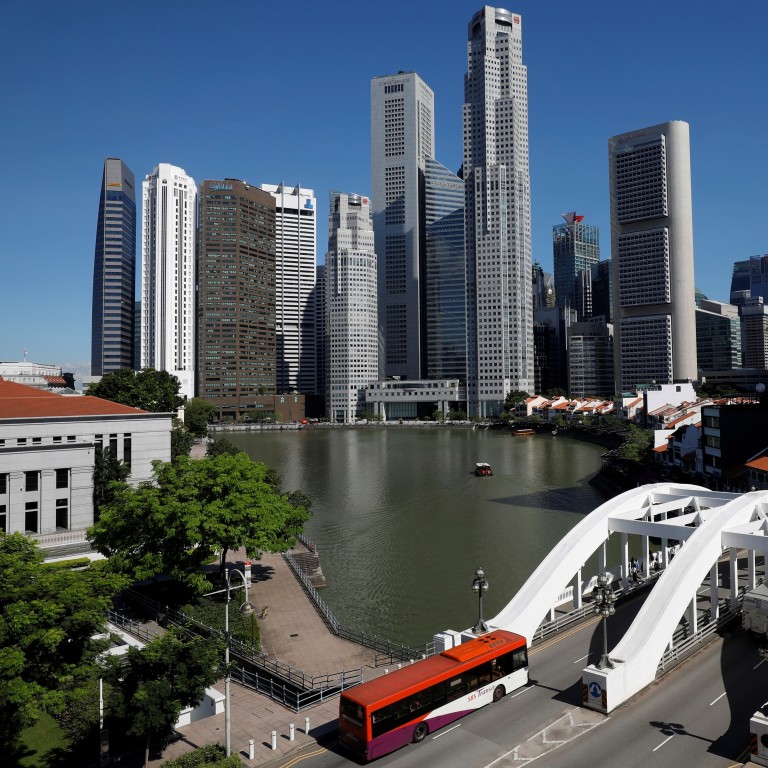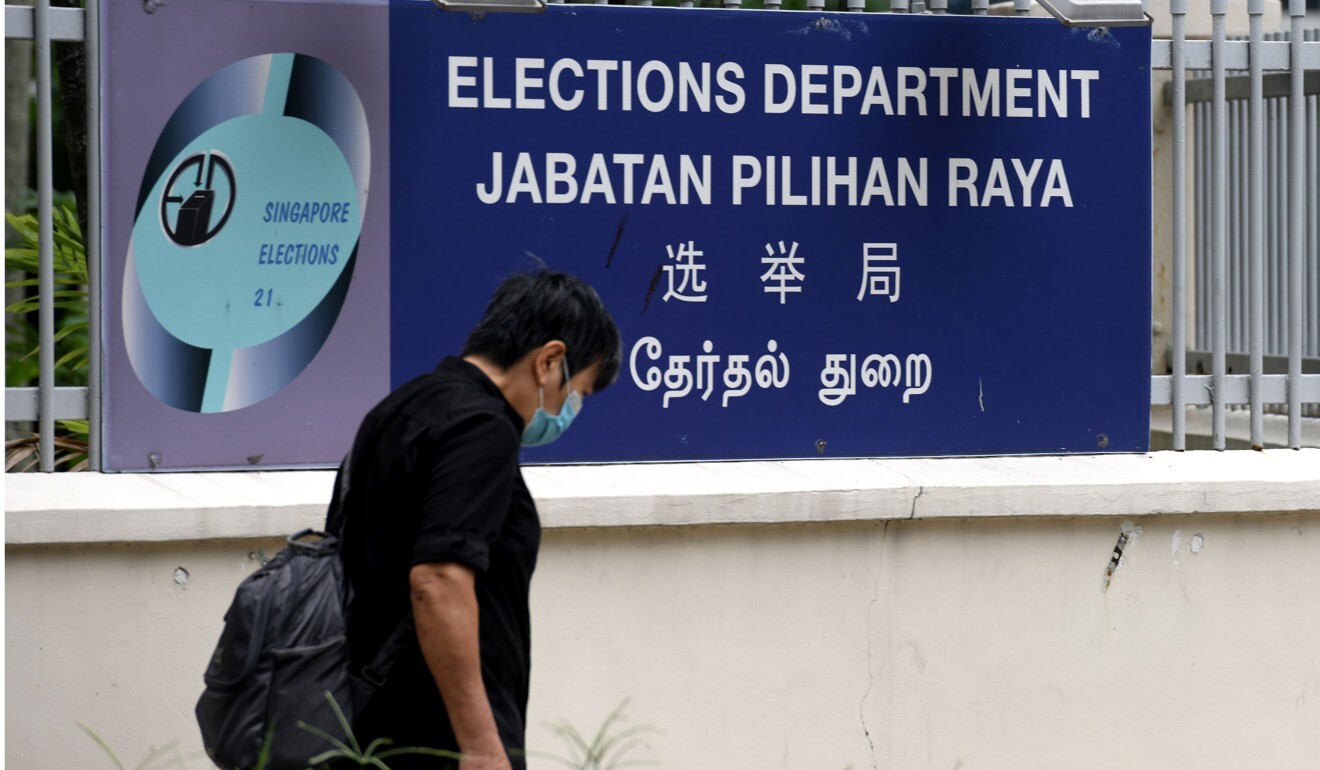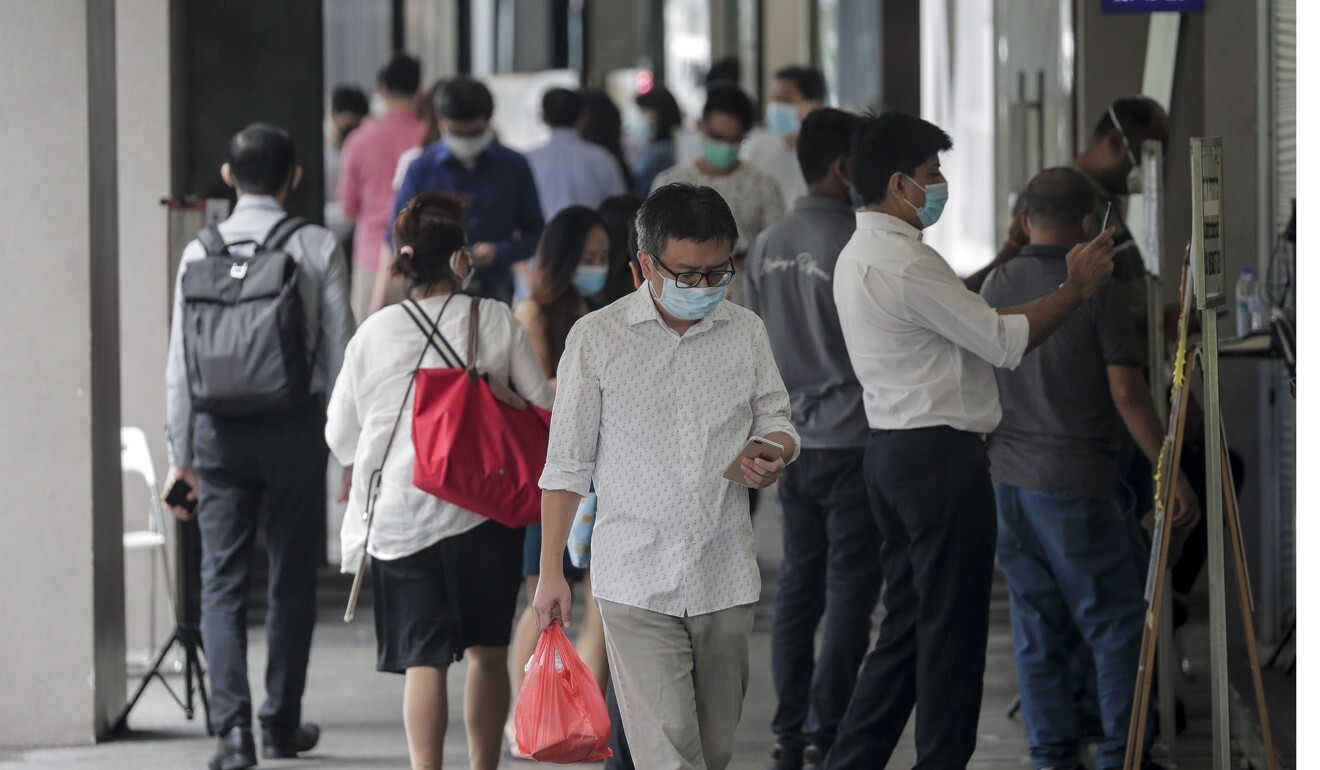
Singapore election: no mass rallies but more media airtime for candidates
- Singapore’s Elections Department has released fresh guidelines on campaigning, amid expectations that a general election could be weeks away
- In light of the coronavirus pandemic, it will help facilitate ‘e-rallies’, but physical walkabouts are permitted if social distancing rules are observed
The fresh guidelines on campaigning follow a separate announcement last week on special measures that will be put in place to safeguard the health of the country’s 2.65 million voters if the polls are held imminently, in the midst of the coronavirus pandemic.

As predicted by political analysts, the Elections Department said the police will not grant permits for mass gatherings such as rallies and a pre-results gathering on polling day.
“In lieu of physical rallies, there will be more airtime on national free-to-air TV channels for political parties and candidates. This is to allow all political parties and candidates to put their messages out to voters, while safeguarding public health and safety,” the department said.
The added airtime includes a special provision for candidates contesting the country’s 93 seats to make “constituency political broadcasts” ranging from three minutes for single-seat constituencies to as long as 15 minutes for larger group representation constituencies of three to five MPs.
In past elections, broadcasts were allocated only to parties, with the airtime granted based on the number of seats the party was contesting.
The People’s Action Party (PAP), which has governed the city state since 1959 by virtue of its practice of contesting all seats, is traditionally granted the lion’s share of the airtime.
The rules for these “party political broadcasts” are unchanged for the upcoming pandemic-time polls, with candidates required to speak in English, Malay, Mandarin, or Tamil.

The Elections Department urged “political parties and candidates to plan for modes of campaigning that do not involve physical group gatherings”.
It said it would help facilitate “e-rallies” with the provision of venues at subsidised rates for candidates to hold live streams, though parties can choose to hold these virtual events from elsewhere.
As for physical walkabouts and door-to-door campaigning, the Elections Department said these activities will be permitted so long as candidates comply with social distancing rules and limits of five people per group with “no mixing between groups, and each group should remain at least one metre apart from other groups”.
Candidates must wear masks, refrain from shaking hands and keep engagements short.
Singapore unveils pandemic-era election measures amid talk of July poll
In its guidelines, the Elections Department warned candidates about external threats, asking them to “play their part to mitigate the risk of becoming vectors or victims of foreign interference”.
“Candidates should enhance their understanding of the threat and be alert to suspicious behaviours and hidden agendas, so that their election campaign is free from foreign interference,” it said.
The campaigning guidelines were released as multiple parties including the PAP signalled they plan to restart physical outreach activities put on ice since early April, when the government imposed a partial lockdown, or “circuit breaker”, to contain the spread of Covid-19 infections.

The measures are now being eased, with the country’s shift on Friday to “Phase 2” of its three-phased reopening plan seen as a key moment in restarting the economy.
While Lee has until April to call the polls, expectations are that he will choose to hold the vote soon to obtain a fresh mandate as the economy reels from the ongoing downturn, and with the prospect of a second wave of the pandemic looming.
Typically, the time period between the dissolution of parliament and polling day is about 18 days – including a minimum nine-day campaigning period and a “cooling off day” on the eve of the vote.
Singapore’s political stability will propel coronavirus recovery, PM Lee says
Political analysts said the country’s opposition parties are likely to be more adversely affected by the pandemic-time restrictions on physical campaigning than the ruling PAP, given their already restricted access to the incumbent-friendly national media.
“We know that opposition party mass rallies have in the past always been impressive in scale and excitement, compared to those organised by the ruling party,” said Kenneth Paul Tan, associate professor at the Lee Kuan Yew School of Public Policy at the National University of Singapore.
Rallies by the likes of the Workers’ Party, the country’s sole opposition party with MPs, have tended to be electric affairs that draw tens of thousands of people.
In contrast, the PAP, which has commanded a national vote share of over 60 per cent for decades, traditionally draws far smaller crowds to its election gatherings.
A total of 12 opposition parties are likely to go up against the ruling party in the coming polls, including a new party called “Red Dot United” whose registration was approved this week.

